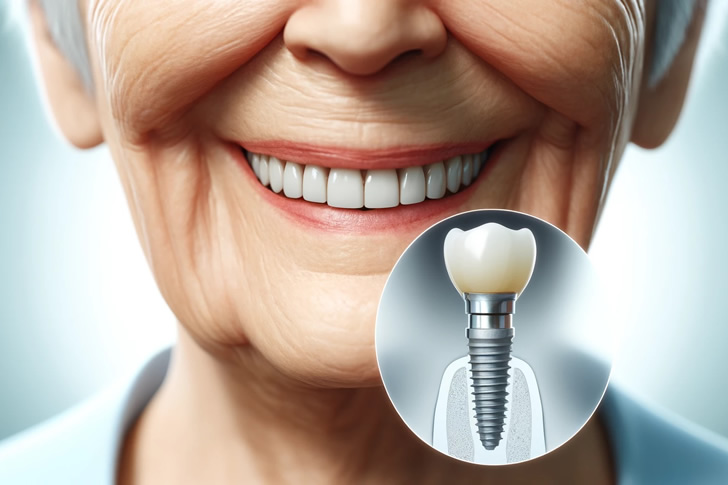How to Find Cheap Dental Implants for Seniors: A Comprehensive Guide
As people age, maintaining oral health becomes increasingly important, and dental implants have become a popular solution for those looking to replace lost teeth. However, the cost of dental implants can be prohibitively expensive, especially for seniors living on a fixed income. This article explores how seniors can find budget-friendly dental implant options, including full dental implants and same-day dental implants, ensuring a combination of quality, durability, and cost-effectiveness.

Understanding Dental Implants
Dental implants are a state-of-the-art replacement for missing teeth. Unlike dentures, which are removable, dental implants are permanently anchored into the jawbone, providing a stable and durable solution that can last a lifetime. The process typically involves the insertion of a titanium post into the jawbone, which then fuses with the bone over several months in a process known as osseointegration. Once healed, a crown is attached to the post, mimicking the appearance and function of a natural tooth.
Types of Dental Implants
- Full Dental Implants: These are used when most or all of the teeth need replacing. This option involves multiple implants and can include full arch replacements, which provide a completely new set of teeth affixed to several implant posts.
- Same Day Dental Implants: Also known as “immediate load” implants, these allow the placement of a temporary tooth on the same day as the implant is inserted. This option is ideal for seniors who desire immediate results and cannot wait for several months of healing before having a functional tooth.
The High Cost of Dental Implants
Dental implants are known for their high cost, which can be attributed to the materials used and the specialized skills required to install them. A single implant can cost anywhere from $1,000 to $3,000, not including the abutment and crown, which can add an additional $500 to $3,000 to the total cost. Full dental implants can run upwards of $20,000 to $45,000 per jaw.
Strategies for Finding Affordable Dental Implants
1. Dental Insurance and Medicare
Most traditional dental insurance plans do not cover implants because they are considered cosmetic. However, some insurance plans might cover part of the cost, such as the crown. It’s important to carefully review your dental insurance benefits to see what aspects, if any, of the implant process are covered.
Medicare generally does not cover dental implants unless they are deemed medically necessary. Some Medicare Advantage Plans may offer broader dental coverage, so reviewing your plan’s benefits is crucial.
2. Dental Schools
Dental schools often provide dental services at a reduced cost as students perform the procedures under the supervision of experienced dentists. This can be a great option for seniors to access more affordable dental implants while contributing to the education of future dentists.
3. Dental Clinics and Health Centers
Some community health centers offer dental services on a sliding scale based on income. These centers can significantly reduce the cost of implants, especially for low-income seniors.
4. Payment Plans and Financing
Many dental offices offer financing options or payment plans that allow you to pay for implants over time. These plans can be tailored to fit your budget, making the cost of implants more manageable.
5. Dental Tourism
Dental tourism involves traveling abroad to countries where dental procedures are significantly cheaper than in the U.S. Countries like Mexico, Costa Rica, and Thailand offer dental implant services at a fraction of the cost seen in the U.S., even including travel expenses. However, it’s crucial to research and select reputable clinics to ensure the quality and safety of the treatment.
6. Discount Dental Plans
These are membership programs where you pay an annual fee in exchange for discounts on dental services from participating dentists. These plans can offer substantial savings on implants and other dental procedures.
Considerations Before Choosing Cheap Dental Implants
While cost is a significant factor for many, it’s essential to balance affordability with quality and safety. Here are a few considerations:
- Qualifications and Experience: Ensure that the dentist has the necessary qualifications and experience to perform dental implant surgery.
- Materials Used: Verify that the implants used are from reputable manufacturers and are not substandard in quality.
- Follow-Up Care: Good follow-up care is crucial for the success of dental implants. Ensure that the dental practice provides comprehensive post-operative care.
Conclusion
Finding affordable dental implants for seniors requires research and careful consideration of various options. By exploring insurance coverage, considering dental schools, evaluating community health centers, and investigating financing and discount plans, seniors can find economically feasible ways to restore their dental health. Remember, the cheapest option is not always the best, and it is important to prioritize quality and safety when selecting a dental implant provider. With the right approach, dental implants can be both accessible and affordable, helping seniors maintain a healthy, functional smile in their later years.







Recent Comments